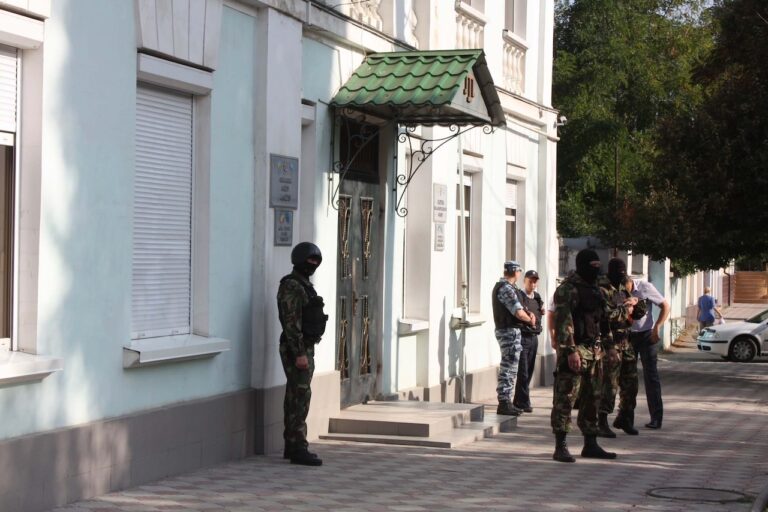ARTICLE 19 and the Russian Union of Journalists (RUJ) held their first one-day meeting to share experiences of addressing violence against journalists, exchange best practices and strategies on protection, and learn from each other.
(ARTICLE 19/IFEX) – December 19, 2011 – On December 16, ARTICLE 19 and the Russian Union of Journalists (RUJ) held their first one-day meeting to share experiences of addressing violence against journalists, exchange best practices and strategies on protection, and learn from each other. Both countries are experiencing a high level of violence against journalists, including killings, physical violence, threats, and cyber attacks.
Ali Kamalov, Chairman of the Union of Journalists in Dagestan, was supposed to attend the meeting, which he had discussed with the ARTICLE 19 Executive Director the night before the meeting was to take place. A couple of hours later, he was called back to Dagestan: his nephew, the journalist Khadzhimurad Kamalov, founder and editor of the newspaper Chernovik, had been killed.
“The value and symbol of this meeting were tragically confirmed; the urgent need for further exchange and learning firmly established. Together, we stand stronger in holding governments to account for their failure to protect journalists. Together, we are more effective in devising and implementing the best strategies to addressing violence against journalists and combat impunity,” said Agnes Callamard, Executive Director of ARTICLE 19.
The meeting brought together ARTICLE 19 staff members from Mexico and London, Javier Garzia, the editor of El Siglo de Torreon in Mexico, journalists from the RUJ, including from the North Caucasus and the Far East, and staff members of the Glasnost foundations.
The meeting highlighted many common challenges faced by journalists and civil society activists and human rights defenders in the two countries, including the lack of political will at the highest levels of government, to tackle effectively the violence against journalists, and the role of the police and the court. The three organisations insisted on the central responsibility of the state to investigate all crimes against journalists promptly and effectively, and to bring perpetrators of crimes against journalists to justice.
Participants discussed and debated a range of topics, including: the monitoring and investigation of acts of violence, and the analysis of monitoring results, trends and risks factors; protection and safety training programmes; direct protection measures; experiences with and learning from legal and institutional reforms. Dario Ramirez, director of ARTICLE 19 Mexico and Central America, commented that: “Exchanging and sharing experiences to address similar threats to free media in Mexico and Russia has been most useful and we are looking forward to further exchanges.”
There were detailed exchanges on monitoring methodology, including the different categories of crimes and ways of measurements of impunity. John Crowfoot, RUJ analyst on Russia, stressed: “the basic requirement for effective action is timely and reliable information. This meeting with Mexican colleagues allowed us to share valuable experiences and knowledge accumulated over many years of monitoring.”
Some of the next steps identified include: the exchange of safety manuals and protocols; a study tour on methodology of database categories, compilation and analysis, including exchange of software; and a comparative review of monitoring findings on a monthly basis; ARTICLE 19 approaches to safety training to be piloted in North Caucasus; production and broadcasting of respective videos on the issue of protection of journalists; further exchange of experiences on addressing cyber attacks; organisation of an international conference on threats to journalists, recognising that this category of crimes, often misunderstood, is a critical early warning.
“This was a very important break-through event. Experts and journalists from two different countries met and realised they share many similar problems and many strategies to address these problems,” concluded Nadezhda Azhgikhina, deputy president of the RUJ. “The meeting proved the importance of international solidarity and cooperation amongst lawyers, journalists, activists. This is a big demonstration of hope.”
The meeting was generously supported by the British Embassy in Moscow.


